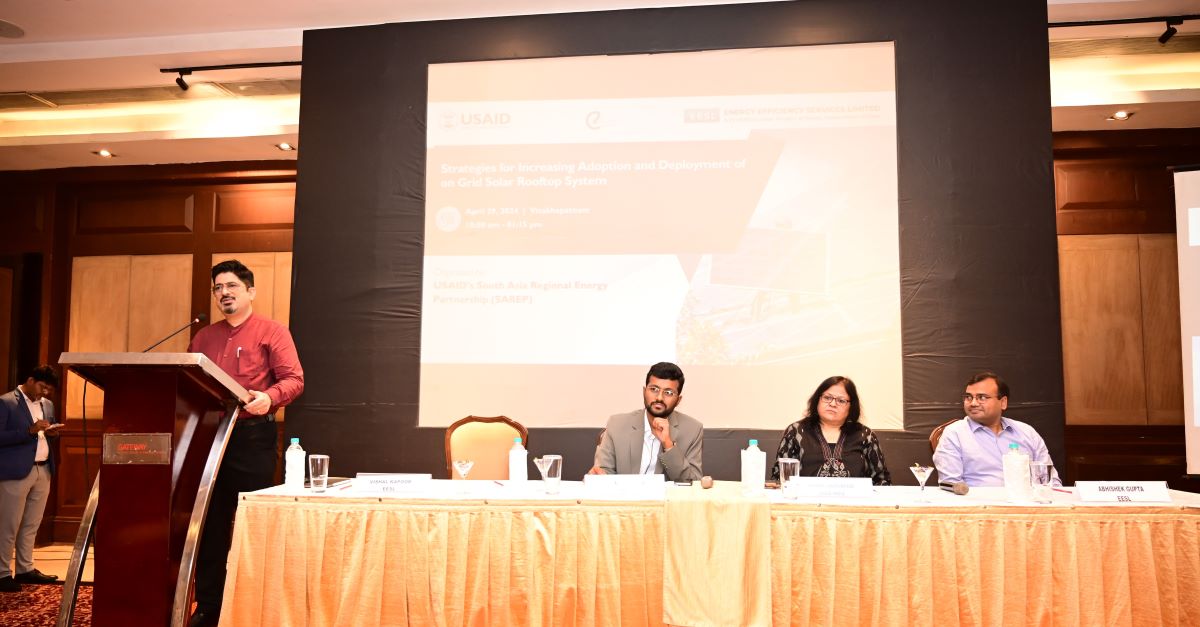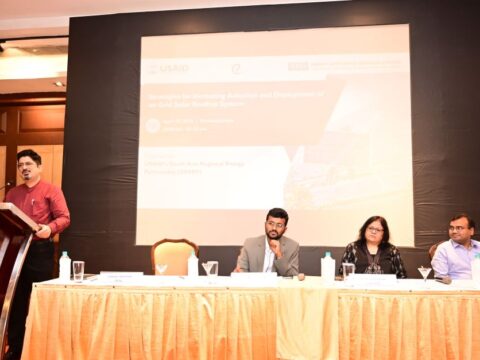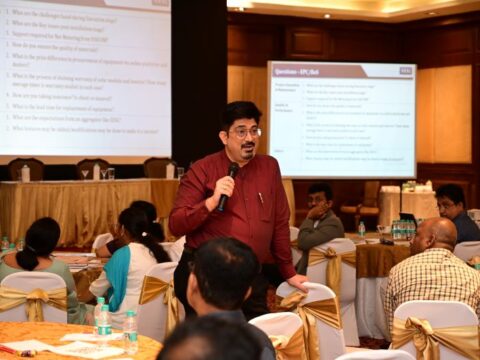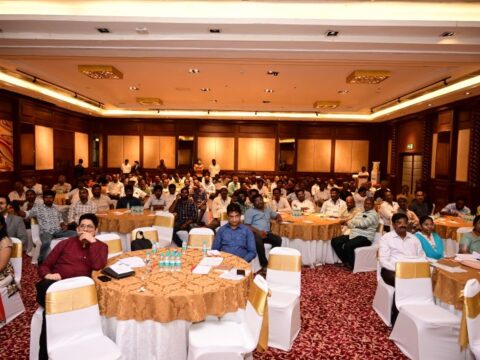Stakeholder Consultation Workshop with Solar PV Module and Inverter Manufacturers, and EPC Companies in Southern India
India aims for 500GW of renewable energy by 2030, of which 40GW is envisioned to come from rooftop solar (RTS) PV installations. Challenges in achieving this target include high equipment costs, which prevent medium/small-scale vendors from investing in larger capacity inventory to secure lower equipment prices. This, in turn, hinders widespread Rooftop Solar (RTS) PV adoption.
To gather insights from various stakeholders on the challenges, USAID’s SAREP program, in collaboration with Energy Efficiency Services Limited (EESL), organized a workshop on ‘Stakeholder Consultation Workshop with Solar PV Module and Inverter Manufacturers, and EPC Companies in Southern India’ on April 29, 2024, in Vishakhapatnam.
This was the second workshop in a series of stakeholder consultations held across India, that aim to discuss strategies and potential solutions for scaling rooftop solar PV deployment. The first workshop, titled “Strategies for Increasing Adoption and Deployment of on-Grid Solar Rooftop System,” took place in New Delhi on April 24, 2024. It focused on the potential of an aggregated model for a cost-effective supply of photovoltaic modules and inverters in India and discussions with EPC companies.
The discussions at the second workshop centered around equipment standardization, the capabilities of star-rated photovoltaic modules and inverters, challenges in the manufacturing industry, and potential solutions for managing supply and demand. Over two sessions, the consultation brought together over 170 key stakeholders from DISCOMs, photovoltaic module and solar inverter manufacturers, Engineering, Procurement, and Construction (EPC) players, and electrical contractors.
During the welcome address, Apurva Chaturvedi, Senior Regional Clean Energy Specialist at USAID India, commended the state of Andhra Pradesh for pioneering the deployment of the Government of India’s large-scale solar rooftop PV installation scheme.
Vishal Kapoor, CEO, EESL deliberated upon EESL’s aim to provide standardized and affordable material supplies to vendors which would help the consumers to accrue the benefits, creating an open market for the vendors.
Prudhvi Tej Immadi (IAS), CMD of the Andhra Pradesh Eastern Power Distribution Company Limited (APEPDCL), emphasized DISCOM’s role in providing net meters, conducting inspections, issuing feasibility reports, and making the installation procedure consumer—and vendor-friendly. He highlighted the importance of vendors understanding customer needs and offering affordable rooftop solar system installation services.
Abhishek Gupta, Head Solar Roof-top, EESL, presented on RTS PV scheme, opportunities for stakeholders including consumers, DISCOMS, EPC players, and key enablers for implementation at scale.
The workshop concluded with a vote of thanks by Nikhlesh Kataria, Cluster Head (SERC), EESL, who spoke about EESL’s aim to facilitate and collaborate with industry stakeholders to resolve their grass-roots issues.
The workshop served as a platform to identify solutions to critical issues surrounding aggregation, demand and supply, and availability of solar equipment for scaling up rooftop solar in Andhra Pradesh while maintaining commercial viability.
Agenda:








